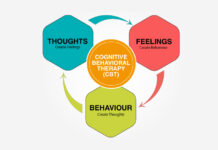
When was the last time you stopped to consider your needs, without also taking into account what someone else wanted for you?
There’s nothing wrong with putting energy into relationships with loved ones or turning your attention toward finding a romantic partner or new friend. People need love, intimacy, and companionship, so you are focusing on yourself by pursuing those needs.
It’s also pretty safe to say that if you never stop to consider others, your relationships probably won’t thrive.
All the same, neglecting your own dreams and desires can still hold you back. A life lived solely in the pursuit of the happiness of others may not bring you much personal joy. Over time, you might begin feeling drained even a little lost.
Focusing on yourself isn’t selfish. It’s an act of self-love. But when you’ve been in the habit of focusing on others, it can be hard to shift gears. These 7 tips can help.
Get better acquainted with yourself
Building a strong self-relationship is a great way to return your focus to yourself.
Feeling uncertain about your identity can make it tough to get clarity on what you want from life. Without some familiarity with who you are as a person, you can’t do much to achieve your goals, live according to your values, or get your needs met.
Significant events — breakup, career change, childbirth, personal crisis —can prompt growth and cast a spotlight on ways you’ve already changed. This illumination may call into question things you thought you knew about yourself as new aspects of your identity emerge for the first time.
You may not immediately welcome this new self-knowledge, especially if it contradicts your existing perception of who you are. But failing to acknowledge your growth can leave you feeling incomplete and unfulfilled.
This uncertainty can begin to affectTrusted Source your emotional well-being, sense of self-worth, and your relationships with others. Approaching these changes in yourself with curiosity can help you acclimate more easily.
Getting to know you
Think of yourself as a fascinating person you want to befriend, but instead of striking up a conversation with yourself (though that’s OK, too), try:
- keeping a daily journal of your routine, conversations with friends, emotions, hobbies, personal frustrations — anything that comes to mind.
- making a list of experiences you’d like to have
- challenging yourself to try something new each day
- identifying, through lists or journaling, your key likes and dislikes
- identifying strengths and areas where you’d like to grow
These exercises can help you begin to build a more complete picture of yourself as a person, outside the influence of anyone else.
Make sure you’re seeking what you really want
Most people care about the opinions of their loved ones. Sure, you don’t automatically do everything your family or friends suggest, but you do carefully weigh their guidance when trying to make a decision.
It’s generally helpful to get insight from others, especially for big decisions. Still, it’s important to draw a distinction between finding value in this guidance and letting it sway you from your preferred course. The difference sometimes gets a little blurred, and you may not even realize at first that your dreams are actually someone else’s dreams.
Maybe you’ve had little luck with dating. Your loved ones reassure you that eventually you’ll find the right person and encourage you to keep trying, since getting married and having children are important parts of life, right?
Well, not if you don’t want them to be. Societal ideals around dating and relationships often suggest single people are lonely and incomplete. In reality, many people find permanent singlehood far more fulfilling than pursuing relationships they don’t actually want.
So, if you’ve discovered you don’t actually want to “find” anyone (or take a certain job or doing anything else others expect of you), honor that truth.
Create a self-care plan
In its most literal sense, focusing on yourself revolves around self-care practices that meet your needs.
Self-care allows you to turn your attention toward yourself in a fundamental way. Everyone has basic needs that play an important part in overall well-being, including sleep, nutrition, physical exercise, and relaxation.
If you neglect these needs, you’re probably not getting enough time to recharge from life’s various sources of stress. You might not notice much of an impact at first, but eventually, you might see some unwanted changes in your physical and emotional health.
To get started with self-care:
- Make time for physical activity.
- Add mood-boosting foods to your diet.
- Give meditation a try.
- Write or draw in a mood journal.
- Read a book.
- Aim to spend 2 hours in nature each week.
You don’t have to do every single one of these. In fact, it’s probably wise to start small. Choose one thing to work on, and gradually work your way toward other practices that make you feel good.
Source: healthline.com










